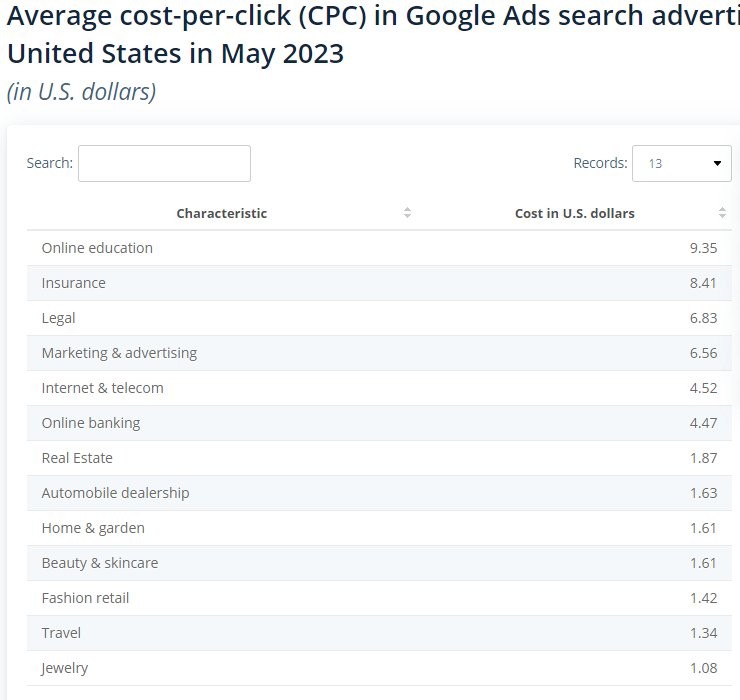
By John Miglautsch and edited by Mike Chiricuzio August 29, 2023
“With all the abilities to use the principles of psychology within DM and all the testing and measurement available to DM users, why does there appear to be so much bad DM, and why does it have a bad reputation?” Mike Chiricuzio
I have asked dozens of long-time direct mail professionals if they test enough. The answer has been consistently “No”. One reason is that they can much more quickly test clicks with digital ads and do not like waiting weeks for definitive return on investment answers. Another one told me, “Our CFO doesn’t allow much real testing because he pointed out that one side of the test will lose. If we test, we erode the overall margin, which would not have been lost had we just mailed the winner.”
Yes, that is very true. If you can predict the future, then there is zero need for testing. Pity that you cannot.
I distinguish direct mail from direct response and direct marketing (definitely NOT an industry standard). For me, direct mail is advertising mail. It can be branding without a response device or call to action. If these are included, if generating a call, click, or a reply is intended, it then becomes a direct response. Direct response advertising is media-independent, but direct mail might be used. Finally, direct marketing is an ongoing system that specifies statistically valid experimentation. It always includes a control vs. a test, which is designed to isolate one or more key variables to show the incremental difference between the winner and loser in the test.
Decades ago, I challenged the Direct Marketing Association definition (and have never stopped). Bob Stone agreed that the authors never dreamed that someone could measure yet did not test. Testing is the essence. Direct Marketing allows the market to inform the marketing.
Dick Shaver begins his excellent book: “Don’t say direct mail marketing has been tried and failed because it hasn’t been tried yet!” He continues, “Nothing else so dramatically illustrates the vast difference in the mindset, goals and expertise of these Fortune 500 companies as the absence of response measurement in terms of profit and loss and the absence of testing.” Ch 2, Why Database Marketing Didn’t Get Rid of Junk Mail pp 12-13.
History
There is a long history of the language of direct mail being appropriated by marketers who need more understanding of or inclination toward their advertising being held accountable. Advertising legends Claude Hopkins and David Oglivy credit their massive success to what they learned from direct mail professionals and practices. Ogilvy believed that big agencies and direct marketers would someday unite (but the opposite has happened). Direct Marketing has been diluted to meaningless by the association that coined it. One of its authors told me, “We wanted everyone to embrace direct marketing, not just ‘good’ direct marketing.”
Cost per Contact
Direct mail is expensive. If we spend $1.00 per piece and mail a million pieces, that is a million dollars. How can we afford to risk that kind of money? The CFO doesn’t like seeing these significant expenses.
Interestingly, Google search ads in almost all industries are over $1.00. Further, Google says the bounce rate averages about 50% – meaning that half the people who click don’t stay 10 seconds or click anything else on your website. So take all these numbers and double them.

But digital advertising is expected and generates so much traffic that the CFO won’t question it. Digital ad costs keep rising at or beyond inflation rate. Digital fraud is estimated (by Dr. Augustine Fu) to be as much as 30%, so multiply all these costs by 1.3.
Acquisition
Since few marketers test, far fewer have yet to learn of downstream value. One of my catalog clients hired ‘digital’ experts and asked me to review their work. Not only did they sincerely believe that if the total sales were slightly more than the ad spend, they were breaking even, they also thought their sale customers had the same worth as the traditional catalog buyers. When we compared six-month downstream profitability, their digital buyers were hardly worth mailing, with only 25% of the value. I have repeated this analysis with similar results several times.
With little or no accounting training, marketers are considered commodities with little value or self-inflated children by C-suite professionals.
Valid Testing
The only hope for direct mail to be valued is to conduct precise testing, especially against other media.
Hold-out testing can clearly show the incremental impact of direct mail within the context of omnichannel marketing. Further, without it, unaccountable digital will always win. Unless your CEO and CFO participate in the testing conception, they will not see your results as far more conclusive than ‘clicks and impressions.’ If direct mailers do not impose proven accountability on themselves, direct mail will continue to shrink in marketing budgets.